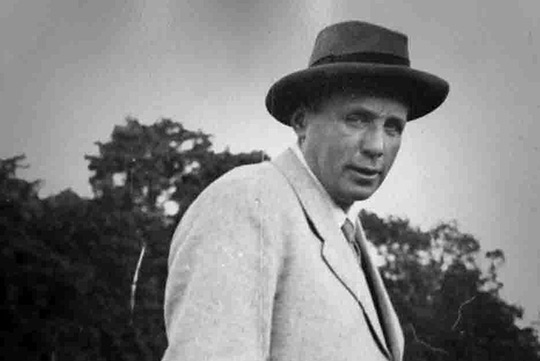TC's Tom James Discusses "Expeditionary Education" in American RadioWorks Series
Thomas James, TC’s Provost and Dean, is extensively quoted in the first two segments of “Beyond the Blackboard: Building Character in Public Schools,” a radio documentary presented by American RadioWorks and American Public Media that is just being released to 900 radio stations all over the country. In the New York City/tri-state area, segments will air on Saturday, September 26, at 6 a.m. on 93.9FM (WNYC) and NJPR; at 2 p.m. on AM 820 (WNYC); and at 9 p.m. on NJPR. On Sunday, September 27, they will air at 8 pm on 93.9FM (WNYC) and AM 820 (WNYC).
The documentary series focuses on the current narrow concern of American schools with academic achievement and testing and explores whether and how to teach “character” – non-cognitive skills such as persistence, courage and moral decency. To that end, in the early installments, it revisits the life and work of Kurt Hahn, founder of Outward Bound, the Expeditionary Learning Schools and the United World Colleges. James, an education historian, has written widely on Hahn and his work, including a personal essay on how he himself was influenced by Hahn’s ideas.
Hahn was a German Jew who served as private secretary to Prince Max Von Baden, the last Imperial Chancellor of Germany. As James describes in the series, he was profoundly affected by World War I and by his own rigid schooling.
The War was “a tremendous breach of civilization” that convinced Hahn that “the project of education should be to develop young people ready to be citizens in a new kind of world,” James says. He recounts that Hahn viewed the school he attended as a “torment box,” focused on testing, and that a novel Hahn wrote in his twenties tells of a young boy writing an essay about something he loves, only to be laughed at by his teacher. The boy’s mother takes him out of school to the countryside, where they hike and go boating. “The contrast of this wonderful world of lived experiences versus the treatment of this very formal school is in many ways the spring or fountainhead for the philosophy of Hahn,” James says.
Hahn founded the Salem School in Germany, which had seven principles, including “Give children the opportunity for self-discovery”, “make children meet with triumph and failure,” and “given children the opportunity of self-effacement in the common cause.” The school was shut down when Hahn told all students they had to break with Hitler or leave. He was jailed, but friends got him out and he fled to Britain. There, in the 1940s, he set up Gordonstoun, which became one of the leading schools in the United Kingdom, to teach leadership, persistence, collaboration and other skills. Prince Charles and Prince Phillip attended the school, which, among other things, sent its students on wilderness expeditions.
“One thing about adventure in the outdoors is that you’re working in an environment you can’t predict,” James says. “It’s going to produce landscapes and challenges and darkness before you’re ready for darkness. [Hahn] believes that the realm of experience in nature is so important in teaching people to be more resourceful and more grounded in themselves to make decisions.”
Hahn, who died in 1974, believed these were skills that conventional schools should focus on as well. In the fall of 2007, the Kurt Hahn Expeditionary Learning School opened in Brooklyn. The radio series describes how other public schools are integrating Hahn’s ideas – and how their students are outperforming their peers when it comes to test scores and graduation rates, as well as in areas such as motivation, academic engagement and problem-solving ability.
One of those Expeditionary Learning Schools, in Springfield, Massachusetts, has in the entryway a line that Tom James wrote at the start of the original proposal for Expeditionary Learning based upon Hahn’s ideals: “To start a school is to proclaim what it means to be a human being.”
Published Tuesday, Sep. 15, 2015
